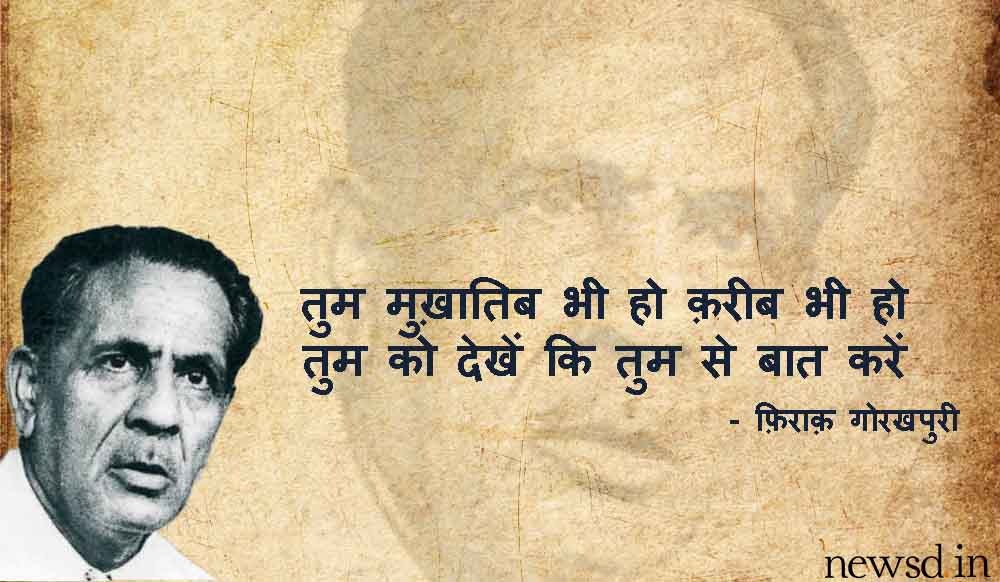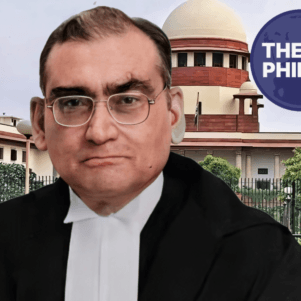
Urdu poetry
By Justice Katju
Firaq Saheb ( the great Urdu poet Firaq Gorakhpuri ) used to often point out some defects in Urdu poetry. For instance, it has very little nature poetry, such as the nature poetry of the English poet Wordsworth ( see ‘The Daffodils’, ‘Solitary Reaper’, ‘Tintern Abbey’, ‘The Prelude’, etc ) and ‘ Meghadut ‘ in Sanskrit by Kalidas. It also lacks the maternal love poetry e.g. the maternal love of Yashoda for the child Krishna, depicted in Surdas and Raskhan, and in the Tamil poem ‘Tiruppavai’ by Andal.
However, there is one aspect from which perspective Urdu poetry ranks as the greatest poetry in the world.
I have read the poetry of several countries–England, America, France, Germany, Russia, Spain, the Latin American countries, Persia, etc and also much of the poetry of India e.g. Hindi, Sanskrit, Bengali, Tamil, etc.
In no language does the voice of the human heart come out with such power and with such elegance ( andaz-e-bayan ) as in Urdu. In that respect Urdu poetry is the greatest in the world ( see my article ‘ What is Urdu ‘ on my blog justicekatju.blogspot.in )
http://justicekatju.blogspot.com/2012/02/what-is-urdu-speech-delivered-on-8.html
In a marvel of condensation an Urdu sher ( couplet ) can describe a whole historical era :
Urdu poetry is a poetry of protest, protest against the afflictions of the common man, and against injustice ( see Faez’ ‘Hum Dekhenge’ ). In this sense it is a successor to Kabir’s poetry, though in more sophisticated form.
It is also a revolutionary poetry ( see Bismil’s poem “Safaroshi ki tamanna ab hamaare dil mein hai” )
Upto 1947 Urdu was the common language of most educated Indians, whether Hindu, Muslim, Sikh or Christian
What a tragedy that this great language was sought to be suppressed by some bigoted idiots in the land of its own birth, who called it a foreign language, and the language of Muslims alone





